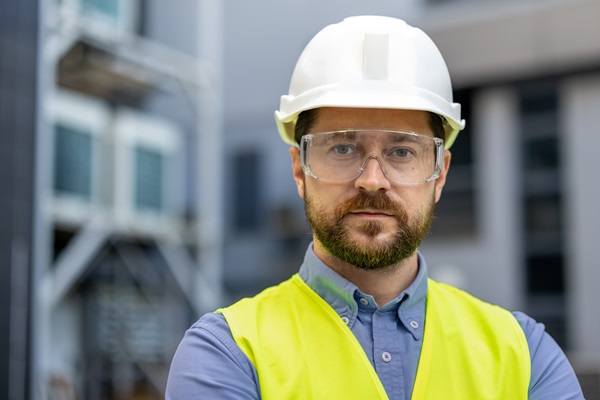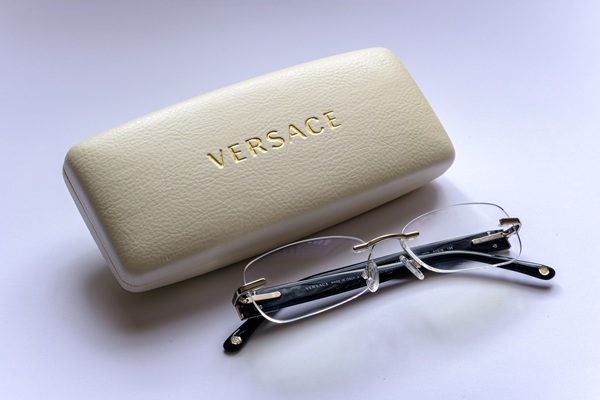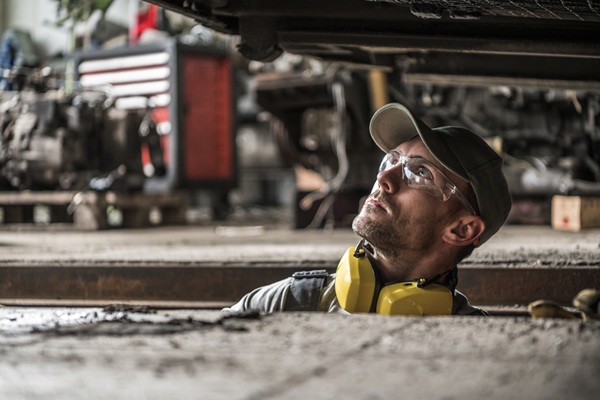5 Differences Between Safety Glasses and Regular Glasses

When it comes to eyewear, safety glasses and regular glasses serve different purposes. The primary difference is that safety glasses protect the eyes from hazardous activities or environments, while the primary purpose of regular glasses is vision correction. Understanding the other key distinctions between the two is essential for selecting your desired type.
What are safety glasses?
Safety glasses are a type of specialized eyewear that provides enhanced eye protection in environments where there is a risk of injury. These glasses are made to shield against a variety of hazards. The most common are:
- Flying objects and debris
- Chemical or liquid splashes
- Radiation, lasers, or other harmful rays
Since safety glasses prioritize durability and impact resistance, they are ideal for industries like construction, manufacturing, and laboratory work. They are also helpful for recreational activities such as hunting and home improvement projects like repairing cars, grinding, and sanding.
Prescription safety glasses
While vision correction is not the primary purpose of safety glasses, an optometrist can create a pair fitted with the patient’s prescription. There is no need to wear regular prescription glasses underneath safety glasses; doing so could negatively alter the fit and degree of protection. Prescription safety glasses provide maximum protection and accommodate a patient’s vision correction needs, thereby enhancing safety.
Safety glasses vs. regular glasses
There are five main differences between safety glasses and regular glasses. Explore them in detail below.
Lens material and durability
The lenses of safety glasses are typically made from durable, impact-resistant materials such as polycarbonate. This construction allows the lenses to withstand high-velocity impacts without shattering. Lenses are also designed to cover more of the face than regular glasses. Thus, safety glasses offer superior eye protection in hazardous situations.
Note that regular glasses are usually fitted with glass or standard plastic lenses. While these materials provide clarity for vision correction, they are more fragile and prone to breakage. A strong impact could easily shatter regular glass lenses.
Frame construction and protection
In addition to more lens coverage, safety glasses are also designed with robust frames that comfortably cover more of the face. Many models feature wraparound designs that offer peripheral coverage and prevent debris, fluids, or other hazardous materials from entering from the sides. Additionally, side shields are often integrated to protect against these lateral hazards further.
On the other hand, regular glasses have simple frames that only cover the eye and, perhaps, parts of the cheeks and brows. How much of the face they cover comes down to comfort and appearance. This limited and open-sided design does not provide the same level of protection as safety glasses, which makes them unsuitable for hazardous environments.
Lens coatings
The lenses of safety glasses often come with advanced coatings such as anti-scratch and anti-fog treatments so that they can better adapt to changing conditions. Protective eyewear can also include UV protection to shield the eyes from harmful sun rays, which is particularly useful for outdoor work.
Regular glasses, however, may offer lens coatings as optional upgrades, but they are not standard. Anti-scratch or UV protection may be available, but anti-fog coatings are uncommon. This difference makes safety glasses better suited for high-performance environments where clear vision is crucial under various conditions.
Certification and compliance standards
Safety glasses must meet strict safety regulations and are often certified to comply with the American National Standards Institute (ANSI). The ANSI Z87.1 rating ensures the protective eyewear can withstand specific impact levels and offers sufficient protection against workplace hazards such as liquid splashes and flying debris.
In comparison, regular glasses do not have certification requirements. While they fulfill an essential role in vision correction, they are not designed or regulated for impact resistance, flying debris, or splashes of liquid. Therefore, they are unsuitable for use in environments with such hazards.
Intended use
All of the above factors work together to achieve the intended use of safety glasses: to protect against potential hazards in specific environments, like construction sites, manufacturing, or laboratories. They are specifically designed to prevent eye injuries through impact protection, chemical resistance, and UV shielding. An optometrist can create prescription safety glasses for visual clarity, as well.
Conversely, regular glasses focus on vision correction. Their primary role is to improve visual clarity for daily activities, and their frames are often chosen based on style and comfort.
Learn more about safety glasses from an optometrist
An optometrist can provide valuable insight into selecting the right type of safety glasses for your specific needs. They can even create a custom prescription to combine clear vision with premier eye protection. Get more information about safety glasses in an appointment with our team at Texas Optical.
Request an appointment here: https://www.texasoptical.net or call Texas Optical at (214) 771-7333 for an appointment in our Dallas office.
Check out what others are saying about our services on Yelp: Read our Yelp reviews.
Recent Posts
The selection of eyewear feels significantly easier when the styles and craftsmanship of Versace eyewear enters the conversation, since bold lines and iconic detailing create an instantly recognizable look. Versace represents the intersection of Italian fashion and Greek mythos, blending confident glamour with symbolism through its signature Medusa logo. The brand is widely associated with…
Many people who work in construction or laboratories wear safety glasses to protect their eyes during the day. However, keeping your eyes safe extends beyond hazards in the workplace. There is a wide variety of household chores and hobbies for which you should wear eye protection. When used consistently, safety glasses help create a safer…
Transitions lenses combine style and convenience to support clear vision without switching between regular glasses and sunglasses. While they were often considered unfashionable in days past, times have certainly changed. Today, transition lenses can be fashionable, chic, and a reflection of your personal style. When designing a pair for you, an optometrist will look at…
Dry eye treatment is important when occasional irritation becomes ongoing discomfort that interferes with daily activities. Many individuals experience dryness, burning, or a gritty feeling in the eyes from time to time. However, when symptoms start to affect reading, screen use, or time outdoors, a structured approach to diagnosis and care helps protect comfort and…


